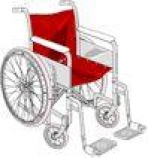
Professor in the Faculty of Medicine
Founding Director of the Faculty of Law's Centre for Medicine,
Ethics and Law at McGill University
What is ethics?
In everyday language ethics can be described as trying not to do the wrong thing in the sense of harming people, first do no harm, and, then, wherever possible, doing the right thing in the sense of benefiting people.
Ethics is about values, especially shared values, in particular those we adopt as our basic societal values – they are sometimes called norms. The nature of a value is not easy to define. The Oxford English Dictionary defines it within the context of ethics as: “That which is worthy of esteem for its own sake; that which has intrinsic worth”. Another way to describe values might be as “ethical organising principles” – they are principles that we can use to guide us in deciding what is ethical and what is not. For instance, a belief that it is wrong to discriminate against people on the basis of physical or mental disability is a value. Applying that value in practice allows us to identify both what we must not do to people with a disability and what we must do for them.
“Ethics in the Context of Disability”, Enhancing the Rights and Personal Freedoms of People with Disabilities, Accreditation Ontario, 2004; 167-187
- handicap
- disability
- hydration and nutrition
- dignity
- euthanasia
- treatment
